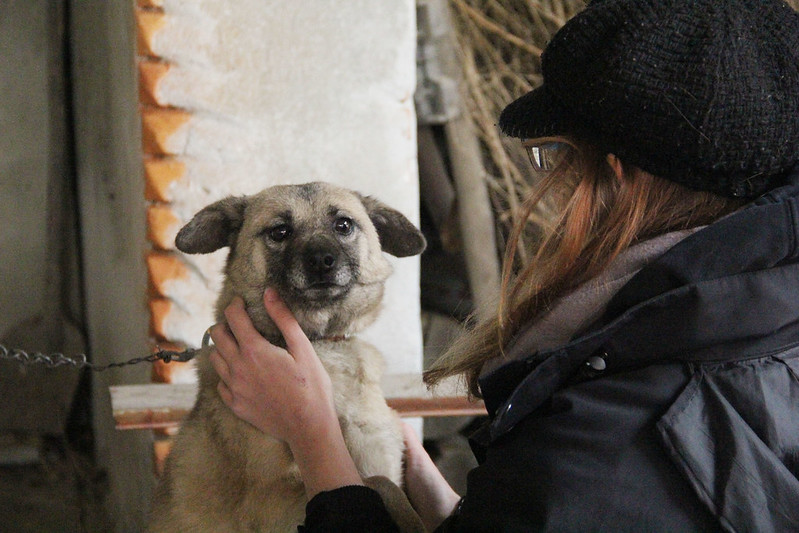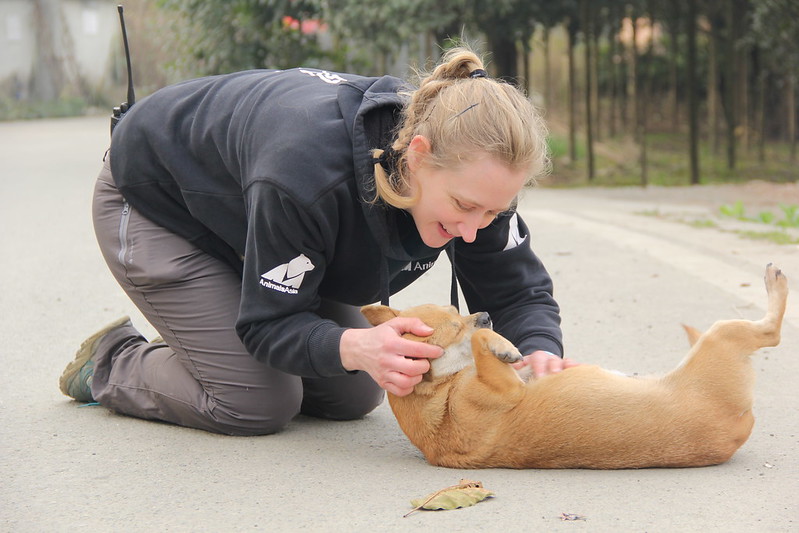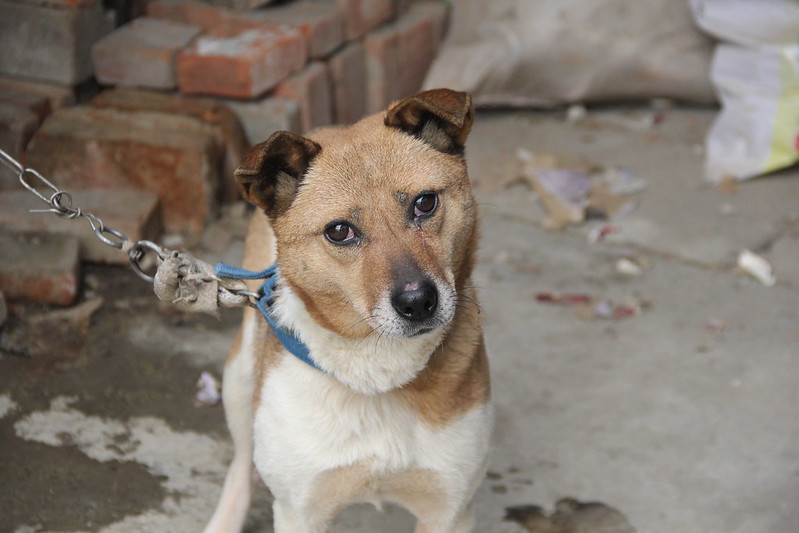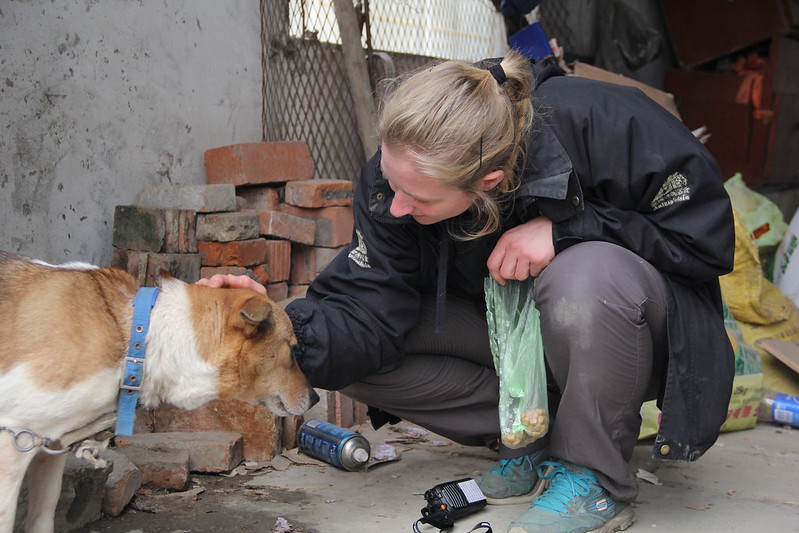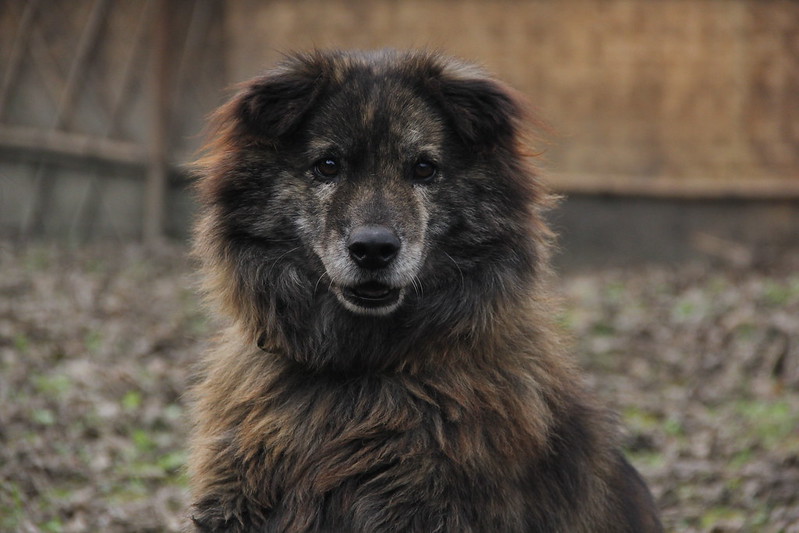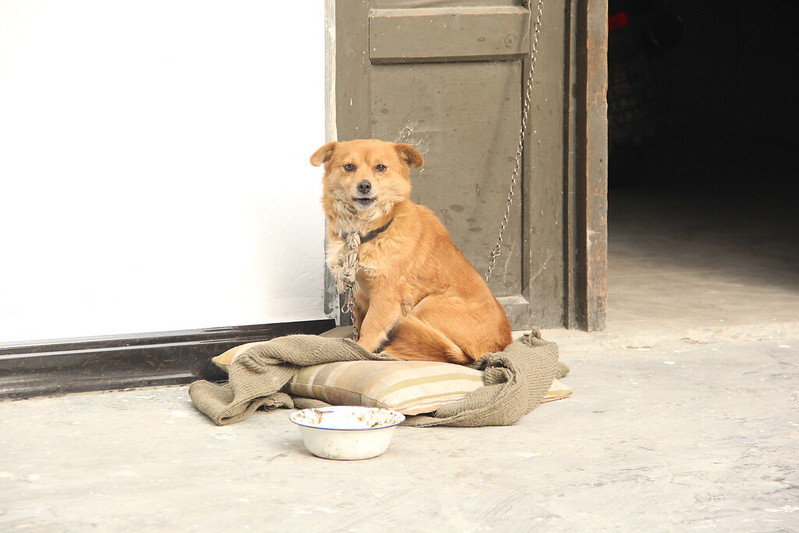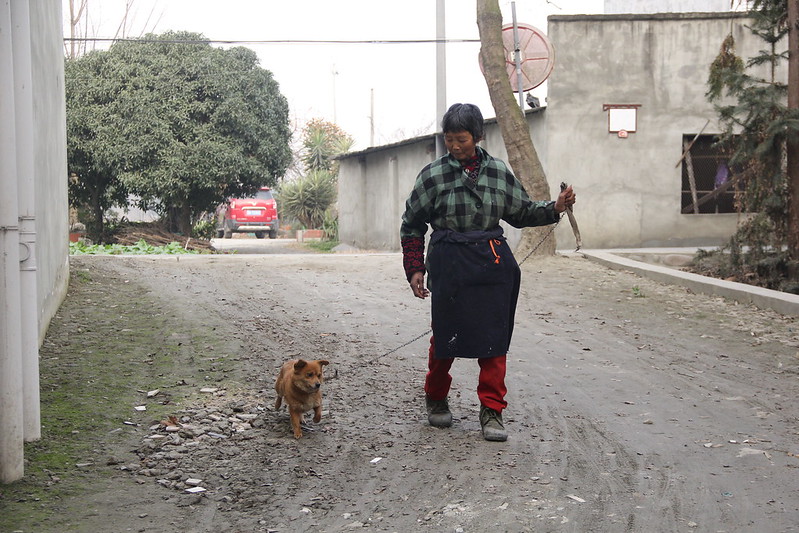By changing attitudes to welfare in our neighbourhood we’re sending ripples of compassion around the country
25 January 2019

They say change begins at home, which is why we’ve been working with communities living around our China sanctuary to improve the lives of their domestic animals.
By Veterinary Nurse Katherine Alexander
Sadly, most of the dogs living in communities around Animals Asia’s China Bear Rescue Centre spend the majority of their lives chained up and are rarely able to go for a walk or a run.
They are fed an unsuitable diet and don’t always have access to water. The majority are not neutered, and getting the owners to agree to surgery can be a challenge.
For staunch advocates of animal welfare it can be a challenge to view animals enduring these conditions every day, but our discomfort is nothing compared to the daily suffering of the animals themselves.
However, with the help of our Cat and Dog Welfare department, our team have been changing attitudes among our neighbours to improve the lives of these animals.
Since at least 2011 we have been vaccinating all the dogs and cats close to the centre against rabies and other infectious diseases and have convinced the owners of 15 animals to agree to spaying and neutering.
Each month we check all the animals living near the sanctuary and give them preventative medicine for fleas and parasites.
Not only does this improve the welfare of the animals themselves, but it also helps with the biosecurity of the rescue centre.
One of the beneficiaries of these endeavours is a long-suffering dog called Jade. She is about four years old and spends all day every day chained up subsisting on a diet of rice soup.
Jade often has scabs on her ears and nose where she has been scratching. We managed to get the skin condition under control using a combination of steroids and antibiotics but her owner was also worried because she has hard faeces - likely due to poor nutrition. We’ve provided a balanced dog food for Jade and already we are seeing an improvement in her overall condition.
We’ll continue to encourage Jade’s owner to give her more time off the leash.
One of the most affectionate dogs in the neighbourhood is Blodwyn. She has been used for breeding for many years and has had several litters of puppies in the time we’ve known her. Her owners of course were very reluctant to neuter her as they see her puppies as an income stream, but with perseverance and education, we managed to convince the family to change their minds.
Today Blodwyn is enormously friendly and loves being stroked. She is no longer chained up and whenever she hears us near her house she will come running for a belly rub and to say hello and to thank us for taking care of her.
In contrast, Hua Hua, a suspected Jack Russell cross, was always on a chain in her front yard. We would often see her surrounded by her own faeces and was also not neutered. Our team spoke to the owners about improving her welfare and explained the importance of clearing away her faeces.
Not only did the family begin to keep Hua Hua in more hygienic conditions, they also agreed to have her de-sexed.
The first time she was off her chain was on the walk from her house to the sanctuary’s small animal hospital for the procedure. It took us twice as long to get there as it normally would as she wanted to stop and smell everything. It was great to be able to get her off the chain, even for a short time and we’ll keep working with her owners to convince them of the benefits of giving Hua Hua more free time.
One of the local dogs that we know best is Buster. Over the years, the sanctuary team have become a sort of co-guardian of Buster and have an agreement that we can take him off the chain every day for a walk.
The local family provide him with food and water and we provide him with bedding as well as taking him for walks and veterinary care. He is a very lovely boy and enjoys lots of TLC. The walk that we take him on is the only time that he gets off the chain, so we let him dictate the speed of the walk. We also give him time to run around off lead in a local dog park.
A newer friend of ours is a small dog called Cho Cho. She was suffering from a painful “cherry eye”, as the gland in her third eyelid fell out of place leaving her vulnerable to swelling and infection.
We were able to surgically correct Cho Cho’s eye problem and even convinced her owners to agree to de-sex Cho Cho at the same time.
Having never been socialised, Cho Cho is not the friendliest dog and will bark at people who she does not know, but over time we’ve earned her trust and she will now even consent to hand-feeding.
But the most satisfying change we’ve seen is that Cho Cho’s owners are increasingly taking her out for walks and much needed exercise. I even saw her owner a few nights ago out in the dark and cold walking Cho Cho. Every time I see her being walked it fills me with joy and hope that positive examples are being seen, accepted and adopted. Change is spreading.
A huge amount of work is required to improve animal welfare. But day-by-day, week-by-week, case-by-case, we are seeing change, and it is happening on our doorstep. Owners are becoming more aware of their responsibilities and their animals’ needs. They are becoming more accepting of our advice, making changes, and as a result animals’ lives are being improved.
For every individual we treat, we know we are making a difference.
Having completed a Bachelor of Science in Veterinary Nursing from The Royal Veterinary College and Middlesex University in 2008, Katherine Alexander has worked in a variety of countries. She has been a veterinary nurse at Animals Asia’s China Bear Rescue Centre (CBRC) since 2017.
BACK
